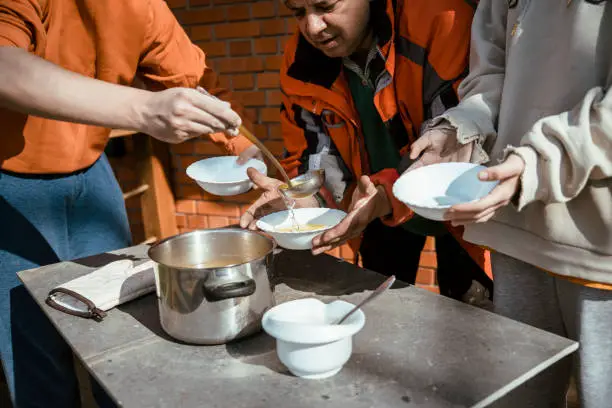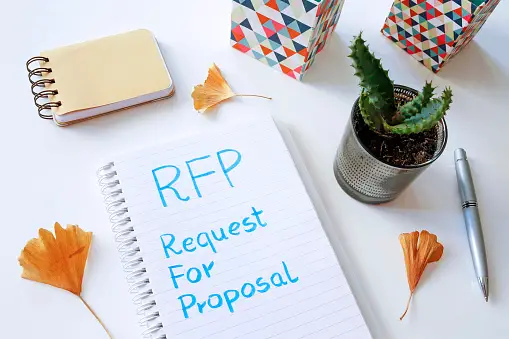Community outreach grants are an invaluable resource for nonprofits, organizations, and even individuals looking to fund projects that benefit local communities. These grants help you deliver programs, services, and initiatives that directly impact people’s lives in positive ways. Whether it’s providing educational resources to underserved populations, improving local infrastructure, or fostering social change, community outreach grants can make your project a reality.
In this guide, we’ll walk through everything you need to know about securing community outreach grants, including where to find them, how to apply for them, and the best practices for increasing your chances of success.
What Are Community Outreach Grants?
At their core, community outreach grants are financial awards given to organizations that aim to improve their local communities. These grants are designed to support projects that address a wide range of needs, from health and education to the arts, environment, and social services. They can be offered by local government agencies, private foundations, corporations, and even individuals passionate about giving back.
The goal of community outreach grants is not just to fund initiatives, but to create lasting impact in the community. By supporting these types of projects, funders aim to foster social equity, promote community engagement, and support positive change.
In 2023, nonprofits across the United States received an estimated $10 billion in grants for community outreach programs alone, according to The Urban Institute. This enormous flow of funding shows the critical role grants play in enabling meaningful community improvement.
Types of Community Outreach Grants
Understanding the different types of community outreach grants can help you identify which ones are the best fit for your organization’s needs. Here are a few common categories:
1. Health and Wellness Grants
These grants fund initiatives focused on improving health, nutrition, and overall well-being. This could include programs aimed at mental health support, substance abuse prevention, physical fitness, and more. Organizations like the Robert Wood Johnson Foundation and the Centers for Disease Control and Prevention (CDC) offer substantial grants in this category. For example, the CDC’s REACH program has provided over $500 million to communities nationwide to address health disparities.
2. Education Grants
Education-related community outreach projects are often funded through grants aimed at improving literacy, providing STEM (science, technology, engineering, and mathematics) programs, and supporting students in underprivileged areas. Foundations such as the Bill & Melinda Gates Foundation and the Walton Family Foundation are known for their support of educational initiatives. In fact, according to the National Center for Education Statistics, students with access to grant-funded after-school programs show a 15% improvement in reading and math scores.
3. Environmental Grants
These grants focus on projects that protect and preserve natural resources, support green initiatives, or address climate change. Local environmental agencies, conservation organizations, and even energy companies often offer grants for projects that align with their sustainability goals. The Environmental Protection Agency (EPA) offers various grants, such as the Environmental Education Grants Program, which allocates millions of dollars every year to projects that educate communities about environmental stewardship.
4. Social Justice and Advocacy Grants
Community outreach initiatives that focus on social justice, human rights, and equality are often funded through this type of grant. Organizations like the Ford Foundation and Open Society Foundations support projects aimed at tackling issues like racial injustice, gender inequality, and refugee rights. According to a report by Nonprofit Quarterly, over 60% of social justice organizations rely on grants to fund critical advocacy work.
5. Arts and Culture Grants
If you’re looking to fund a project that brings the arts to your community—whether it’s music, theater, visual arts, or culture—arts and culture grants are the way to go. The National Endowment for the Arts (NEA) and private art foundations fund a variety of artistic outreach programs. According to the NEA, community-based arts programs have been linked to a 20% increase in community cohesion and a 25% boost in economic activity in neighborhoods where they are active.
6. Economic Development Grants
These grants support initiatives that drive local economic growth, create jobs, or improve business opportunities for underserved communities. They may focus on entrepreneurship, workforce training, or revitalizing local businesses. The U.S. Economic Development Administration (EDA) offers various grant programs aimed at supporting economic development projects that create sustainable jobs and growth.
Where to Find Community Outreach Grants
One of the most challenging parts of applying for community outreach grants is finding the right opportunities. But don’t worry—there are plenty of places to search for funding. Below are some key resources for discovering these grants:
1. Grants.gov
This is the official website for finding federal grants, including many community outreach opportunities. By using the search filters, you can quickly locate grants based on your project’s category and the specific funding agencies that might be interested in supporting your initiative. According to Grants.gov, over 1,000 new funding opportunities are posted each month, so it’s a continually updating resource.
2. Local Foundations and Corporations
Many local foundations and businesses offer community grants. Check with your area’s community foundation, local government offices, and even large companies with philanthropic arms. You can often find funding opportunities tailored specifically to your region’s needs. For instance, the Silicon Valley Community Foundation regularly provides grants for projects that enhance local quality of life.
3. Private Foundations and Charitable Organizations
Organizations like the Ford Foundation, Kellogg Foundation, and Rockefeller Foundation offer community outreach grants with a focus on education, health, and social justice. Many of these foundations provide easy access to their funding opportunities via their websites. A quick search on the Ford Foundation’s website reveals a comprehensive database of available grants and detailed application guidelines.
4. Crowdfunding Platforms
While not traditional grants, crowdfunding platforms like GoFundMe, Kickstarter, and Indiegogo can help raise money for your community outreach project. These platforms allow you to reach a wide audience, and some offer matching funds for certain initiatives. Crowdfunding can often serve as a supplementary method to secure funds, especially when traditional grants fall short.
5. Community and Volunteer Organizations
Nonprofit organizations that focus on volunteerism and service often receive grants for community outreach. They might also have resources or connections to help your initiative. Be sure to research local chapters of organizations like United Way, YMCA, and others. They often act as intermediaries, connecting smaller community groups with larger funding opportunities.
The Application Process for Community Outreach Grants
Applying for community outreach grants may seem daunting, but breaking it down into steps can make it manageable. Here’s a simple, step-by-step guide to applying for a community outreach grant:
1. Research Funding Opportunities
The first step in the process is to find the right grants for your project. Start by using the resources mentioned earlier—Grants.gov, local foundations, crowdfunding platforms, and nonprofit organizations. Filter opportunities based on your project’s focus and eligibility criteria.
Take time to note down deadlines and tailor your preparation according to each funder’s requirements. Subscribe to newsletters from major grant databases to stay informed about new opportunities that match your interests.
2. Review Grant Guidelines
Each grant will come with its own set of guidelines and requirements. Make sure you thoroughly review them to ensure your project meets the funder’s priorities. Pay close attention to deadlines, budget restrictions, and required documentation. When guidelines say “eligible applicant,” ensure your organization or individual qualifications align perfectly.
Pro tip: Many grants also provide FAQs or contact information for questions. Don’t hesitate to reach out for clarifications. It’s better to ask and ensure correctness than to submit a flawed proposal.
3. Write a Clear and Compelling Proposal
Once you’ve found the right grant, the next step is to prepare your proposal. Your proposal should outline the following:
- Project Description: Clearly explain what the project is and what community need it addresses. Use simple language, avoid jargon, and paint a vivid picture of your vision.
- Goals and Objectives: Define what you aim to achieve. Setting measurable objectives helps funders understand how you’ll evaluate success.
- Target Audience: Describe who will benefit from the project. Use demographic data where possible to show a clear need.
- Budget: Provide a detailed breakdown of how the grant money will be used. Transparency here builds trust with the funder.
- Sustainability: Explain how the project will continue after the grant ends. Funders want to know that their investment will have a lasting impact.
A compelling proposal often includes stories or anecdotes that illustrate the need and potential impact. This can make your application more relatable and convincing.
4. Gather Supporting Documentation
Many grant applications require additional documents, such as your organization’s tax-exempt status, financial reports, letters of support, and more. Be sure to have these on hand before submitting your application.
Creating a checklist for all required documents can be helpful. This ensures you don’t overlook anything crucial that could delay or jeopardize your application. Some grants also require a work plan or timeline; having these documents ready speeds up the application process.
5. Submit the Application
Double-check all application materials before submission. Make sure all sections are filled out completely and that you’ve followed the grant guidelines to the letter. Late or incomplete applications are often disqualified, so be sure to submit everything on time.
After submission, confirm receipt if the grant provider offers that service. It’s also good practice to keep a copy of your entire submission for your records.
Tips for Increasing Your Chances of Winning a Grant
Securing a community outreach grant can be competitive. Here are some powerful tips to boost your success rate:
- Be Clear and Specific: A well-defined project with measurable outcomes is more likely to receive funding. Use data and statistics to back up your assertions. For example, instead of saying “improve literacy,” state “increase reading proficiency by 15% among participants within one year through targeted tutoring programs.”
- Know Your Audience: Understand who the funders are and what they value. Tailor your proposal to align with their priorities and mission. If a grant focuses on community health, emphasize how your project improves wellness metrics or access to healthcare.
- Provide Evidence of Impact: Use data and past successes to demonstrate your project’s potential for success. Case studies, testimonials, or pilot project results can enhance credibility. For instance, “Our pilot program last year increased community garden yields by 40%, which improved local nutrition rates.”
- Follow the Guidelines: Pay close attention to every detail in the application instructions. Don’t miss any required documents or sections. Grant reviewers often skim proposals, so presentation and adherence to guidelines can make a strong impression.
- Seek Feedback: Before submitting, have someone else review your proposal to catch any errors or inconsistencies. A fresh pair of eyes can provide valuable insights and help refine your pitch.
- Network and Build Relationships: Establish connections with grant officers, foundation representatives, and community leaders. Personal relationships and a good reputation can sometimes tip the scale in your favor.
Real-Life Success Stories
To better understand how community outreach grants make a difference, consider a few real-life examples:
- Case Study: A Literacy Initiative in Detroit
A small nonprofit in Detroit applied for an education grant to start an after-school tutoring program. By using the funds, they hired tutors, purchased books, and created a safe learning space for children. Within one year, literacy rates in the neighborhood increased by 20%. The success of this project was shared widely, encouraging further funding and replication in nearby areas.
- Case Study: Environmental Clean-Up in San Francisco
An environmental group secured a grant to clean up a polluted waterfront. They organized community volunteers, partnered with local schools for education workshops, and installed recycling stations. The project not only improved the local environment but also fostered a sense of community pride and environmental responsibility among residents.
Data and Sources to Support Your Proposal
Funders appreciate when you back up your proposal with data:
- Community Need Data: Use sources like the U.S. Census Bureau, local health departments, and education statistics to quantify the community’s needs.
- Impact Forecasts: Cite research studies or reports showing how similar projects have succeeded. For instance, the Pew Research Center often publishes data relevant to social change initiatives.
- Budget Standards: Refer to standard budgeting practices within your field to justify expenses.
Incorporating data not only strengthens your proposal but shows that you have done your homework and understand the scope and challenges of your project.
Building a Sustainable Outreach Program
Applying for a grant is just the beginning. To create lasting impact, consider the sustainability of your project:
- Volunteer Engagement: Recruit and train volunteers to keep your programs running.
- Local Partnerships: Collaborate with local businesses, schools, and other nonprofits to share resources.
- Ongoing Funding: Develop a fundraising plan that includes multiple revenue streams such as donations, sponsorships, and additional grants.
- Measurement and Evaluation: Regularly assess your program’s outcomes and adjust strategies as needed. Use surveys, interviews, and other tools to gather feedback from participants and stakeholders.
Final Thoughts
Securing community outreach grants requires time, effort, and attention to detail. But with the right approach and the right resources, you can successfully fund projects that make a lasting impact in your community. Whether you’re focused on health, education, the arts, or social justice, community outreach grants provide the support you need to bring your vision to life.
Want to increase your success rate with grant applications? Subscribe to the Grant Writing Academy Newsletter for tips, strategies, templates, and tools to help you succeed in your grant writing journey. With the right knowledge and resources, you can boost your chances of getting funded and start creating positive change in your community today!
Join our community!
By subscribing to the Grant Writing Academy Newsletter, you’ll gain access to exclusive insights, expert advice, sample proposals, budget templates, and much more.
Stay informed about the latest trends in grant writing, learn from success stories, and connect with a network of passionate grant writers. Subscribe now and take the first step towards turning your community outreach projects into reality.
For more information, helpful templates, and step-by-step guides, visit Grant Writing Academy and join our newsletter. Together, let’s make the world a better place—one grant at a time!
Additional Resources and Support
a) Expand Your Knowledge
The grant writing field is always evolving. Keep learning and improving your skills to stay competitive.
Recommended Resources:
- Request for Proposal Success: How to Write Proposals That Win: Learn the techniques and strategies to create standout proposals.
- Tech Startup Funding Secrets: Navigating Grants for Maximum Growth: Perfect for those in the tech sector looking to leverage grants for scaling.
- Grant Proposal Guide for Environmental Projects: Tailored for environmental initiatives seeking to secure impactful funding.
- The Ultimate Guide to Federal Grant Applications: Techniques for Success: Master the complexities of federal grants with actionable insights.
Explore More Books Here
b) Invest in Expert Guidance
Want to fast-track your growth and achieve even more success?
Join one of our mentorship programs for tailored advice and support:
Mentorship Programs:
- 3-Month Mentorship: The Foundation Builder: A short-term plan to refine your grant writing skills and win your first (or next) grant.
- 6-Month Mentorship: The Proposal Pro: Dive deeper into strategies, proposal reviews, and funding plans.
- 1-Year Mentorship: The Funding Champion: Build long-term success with comprehensive guidance, unlimited reviews, and exclusive resources.
C) Book a One-on-One Consultation
Sometimes you just need personalized advice to tackle challenges or fine-tune your strategy. Let’s work together to solve your unique grant writing challenges.





excellent points altogether, you simply won a new reader.
What would you suggest in regards to your publish that you just made some days
in the past? Any positive?
Helpful information. Lucky me I discovered your web site accidentally, and
I’m stunned why this coincidence did not took place in advance!
I bookmarked it.
Hmm is anyone else experiencing problems with the pictures on this blog loading?
I’m trying to determine if its a problem on my end or if it’s the blog.
Any responses would be greatly appreciated.
Hi there! I know this is sort of off-topic but I had to ask.
Does building a well-established website such as
yours take a massive amount work? I am brand new to operating
a blog however I do write in my diary on a daily basis.
I’d like to start a blog so I will be able to share my
own experience and feelings online. Please let me know if you have any ideas or tips
for new aspiring blog owners. Appreciate it!
You actually make it seem so easy with your presentation but I
find this topic to be actually something that I think I would never understand.
It seems too complicated and very broad for me. I’m looking forward for your next post, I will
try to get the hang of it!
I enjoy you because of each of your hard work on this web page. My niece loves working on research and it’s easy to understand why. My spouse and i learn all relating to the dynamic means you present informative steps through your blog and in addition encourage response from visitors on the topic and our favorite simple princess is undoubtedly understanding a great deal. Take pleasure in the rest of the new year. You are always performing a powerful job.
Spot on with this write-up, I seriously believe that this website needs much more attention. I’ll probably be returning to read through more, thanks for the info!